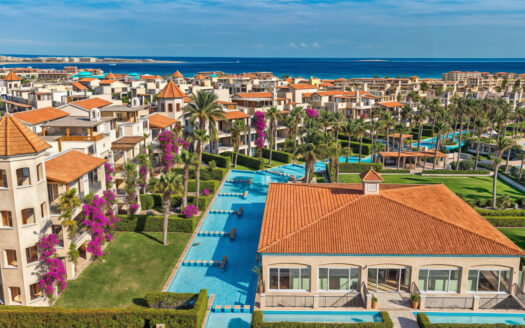The Legal Process for Foreigners Buying Real Estate in Egypt
Introduction
As Egypt’s real estate market continues to welcome international investment, understanding the legal process for foreigners buying real estate in Egypt is critical to making a secure and informed purchase. With legal protections in place and clear steps to follow, the buying process is accessible to expats, retirees, and investors from around the world. Whether you’re eyeing a beachfront unit in Sahl Hasheesh or a compound villa in New Cairo, this guide breaks down the full legal journey from offer to ownership.
Can Foreigners Own Real Estate in Egypt?
Yes. Egypt’s legal framework allows foreign nationals to own residential property in designated areas under freehold terms. This includes coastal destinations like:
- Hurghada
- El Gouna
- Sahl Hasheesh
- Soma Bay
- New Cairo & New Capital
Key legal rights include:
- Ownership of up to two residential properties per person
- Maximum land area of 4,000 square meters per property
- Right to resell, lease, or transfer the property
- Inheritance rights for legal heirs
- Eligibility for residency permits based on ownership
Step-by-Step Legal Process for Foreign Buyers
Step 1: Choose a Property
Identify a location and property type based on your goals—investment, personal use, or rental income. Developers and agents in areas like Sahl Hasheesh and Soma Bay offer a wide range of turnkey units and off-plan options.
Step 2: Sign a Reservation Agreement
Once you select a unit, you’ll sign a reservation form and pay a deposit (typically $2,000–$5,000 or 5–10% of the property price) to reserve the property for a fixed period.
- Includes unit details, layout, and fixed pricing
- Provides a grace period for legal review and contract preparation
Step 3: Hire a Licensed Real Estate Lawyer
Foreign buyers should always appoint an independent legal advisor to:
- Review project licenses and developer credentials
- Validate ownership/title and land registry status
- Translate and explain all contract terms
- Ensure compliance with Egyptian real estate laws
Your lawyer can also act via Power of Attorney (POA) if you’re buying remotely.
Step 4: Sign the Sale and Purchase Agreement
This binding agreement outlines:
- Property specifications (size, floor plan, view)
- Total price and payment schedule
- Delivery date and finishing standards
- Legal rights of ownership and contract cancellation clauses
Contracts are usually bilingual (Arabic and English). Payments are made via international bank transfer, and installments can span 3–8 years.
Step 5: Legal Registration or Notarization
There are two main ownership structures for foreign buyers in Egypt:
1. Developer Contracts (used in most compounds and off-plan projects)
- Legally binding under civil law
- Allows resale, rental, and inheritance
- Common in Red Sea areas like Sahl Hasheesh, El Gouna, and Soma Bay
2. Green Contract (Title Deed)
- Registered through the Real Estate Public Notary
- Confirms full legal ownership under Egyptian property law
- More common for completed, registered units or secondary market sales
Your lawyer will guide you on whether the property qualifies for full registration or if developer-backed ownership applies.
Key Legal Documents Required
To complete a real estate purchase in Egypt, foreign buyers typically need:
- A valid passport (original + copy)
- Reservation and sales agreements
- Proof of payment (bank transfer or receipts)
- Egyptian tax number (can be issued locally)
- POA if applicable (for remote buyers)
Taxes and Legal Costs
Egypt has a favorable tax structure for real estate ownership:
- No capital gains tax on private residential resale
- No inheritance tax
- No annual property tax for most private homeowners
- Rental income tax may apply if leasing commercially
Other legal costs to consider:
- Legal fees: 1–2% of property price (depending on attorney)
- Contract notarization or registration fees (variable)
- Maintenance fees: $500–$1,500 annually (for compound services)
Residency and Inheritance Rights
Owning property in Egypt may qualify foreign buyers for renewable residency permits (1–3 years). Requirements typically include:
- Proof of property ownership
- Passport and contract copy
- Registration (Green Contract or certified sales contract)
Properties in Egypt are inheritable by law, and many expats create local wills to formalize transfer to their heirs.
Common Legal Pitfalls to Avoid
- Skipping contract translation or legal review
- Buying without confirming project registration
- Making untracked payments or cash deals
- Not checking compound or zoning regulations
- Failing to register the property (if eligible)
To avoid complications, always work with licensed professionals and request project documentation before signing any agreement.
Conclusion
The legal process for foreigners buying real estate in Egypt is secure, transparent, and structured to support international investors. With proper legal support and due diligence, you can confidently purchase property in top destinations like Soma Bay, Hurghada, or New Cairo—whether for lifestyle, income, or long-term appreciation.
Ready to invest securely?
Explore Egypt’s verified properties on Buildix or request a consultation with a licensed real estate lawyer to guide your transaction from start to finish.
Mini FAQ
Is it legal for foreigners to buy real estate in Egypt?
Yes. Foreigners can purchase and own residential property in Egypt with full legal rights in designated areas.
What legal documents are required for buying property?
Buyers need a valid passport, signed contracts, proof of payment, and optionally a tax ID and Power of Attorney.
Can foreigners register their property with a title deed?
Yes, if the unit qualifies. Many buyers hold developer contracts which are also legally valid for resale and rental purposes.





